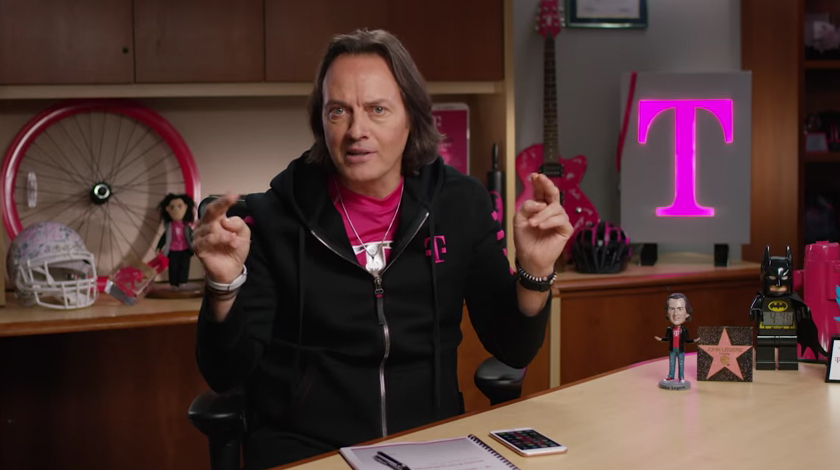T-Mobile announced this morning that it’s bought out TV tech company Layer3, with the intention of launching an-new cable service sometime next year. It’s a dramatic announcement for T-Mobile, a company that so far has narrowly focused on being a wireless network, with impressive success.
Exactly what T-Mobile will be offering isn’t totally clear yet, but it’s definitely going to be some kind of live TV streaming package. It also likely won’t be cheap: Layer3’s existing service starts at $75 a month, and T-Mobile CEO John Legere was throwing around the idea of 250 channels for his new service. That won’t come cheap.
It’s clear from the press release and T-Mobile’s teaser video for the service how it’s planning on going about this. It wants to “disrupt” the existing cable companies by taking all the “pain points” that currently exist, and turning it around. That means T-Mobile’s focus is likely to be on no monthly contracts, good customer service, efficient billing, and a killer tech UI. It’s more or less what T-Mobile did to wireless carriers back in 2014, and it’s hoping that it will be the magic combo that lets an outsider finally crack the world of live-streaming TV.
Unfortunately, the recipe T-Mobile used for wireless might not work in cable. While everyone does undoubtedly hate their cable provider, the problem is that live-streaming TV services run by outsiders already exist. YouTube TV, Fubo, Hulu’s live TV program, AT&T DirecTV Now, and a handful more companies already offer streaming TV. They’re cheap, they have good customer service, and include high-tech features like unlimited cloud DVR.
Saying that you’re going to be disruptive is one thing, but T-Mobile has a lot of work to do to provide proof. Buying Layer3 was a smart way to get its foot in the door, since Layer3 has existing relationships with content providers that it’ll be able to leverage in order to get channels for T-Mobile to offer.
But just having access to content providers isn’t going to solve the number-one problem with every live-streaming TV service: it’s too much like cable. The biggest complaint that customers have about the pricing system used in cable are the channel bundles. Most people would prefer to buy channels literally a la carte without having to pay $20 a month extra for each additional channel bundle, when all you want is one additional channel.
It’s a subscription model that infuriates customers, but it keeps the content providers alive. Many of the channels wouldn’t be profitable at individual prices, so no self-respecting content owner is going to offer up individual channels for a remotely reasonable sum — especially not to a brand-new company with a limited number of subscribers.
So that means that T-Mobile is trying to go up against existing cable companies and brand-new streaming TV companies — including Google! — with nothing to promise apart from great customer service and no monthly contracts. That would work if this were 2014 all over again, but I think T-Mobile will have an unpleasant awakening.










